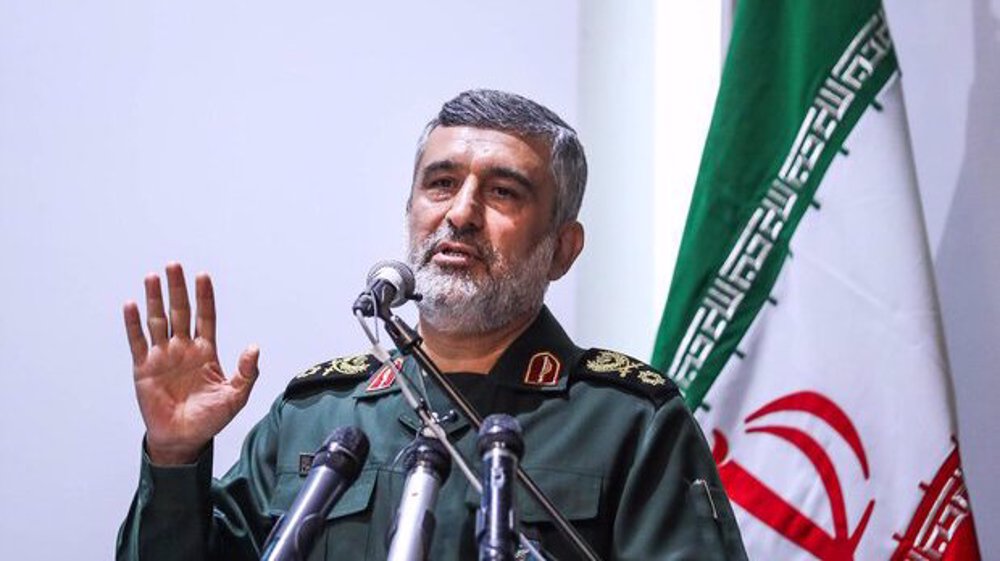A top commander of the Islamic Revolution Guards Corps (IRGC) says the Islamic Republic of Iran managed to inflict defeat on the enemy with the help of artificial intelligence, stressing the need to undertake space research and carry out relevant projects.
Brigadier General Amir-Ali Hajizadeh, the commander of the IRGC’s Aerospace Division, made the remarks during a ceremony at the Khajeh Nasir al-Din Toosi University of Technology in the capital Tehran on Wednesday.
He stressed that the Islamic Republic holds the "upper hand" in the field of aerospace and is now a strong and formidable player in the region.
“Cooperation among [domestic] universities and the country’s defense sector was initially established in the early stages of the Sacred Defense (the Iraqi imposed war in the 1980s)," said Hajizadeh.
"We have attained tremendous success in the field of cooperation between universities and the defense sector. We can definitely declare that we have turned from an importer of barbed wire into an exporter of technology."
He hastened to add that due to artificial intelligence, Iran has managed to defeat the enemy "at a distance of more than a thousand kilometers away.”
“The IRGC Aerospace Force enjoys fairly high standards in terms of technicality, military hardware, and reduction of the adverse effects of signal jamming,” Hajizadeh pointed out.
The senior Iranian military commander went on to say that Iran has successfully passed a challenging decade, which started with former US president Barack Obama’s crippling sanctions and was followed by provocative measures in the West Asia region, Donald Trump's so-called maximum pressure campaign, the brutal assassination of the country’s top anti-terror commander Lieutenant General Qassem Soleimani, and the unilateral US withdrawal from the nuclear deal.
The IRGC Aerospace Force commander noted that Iran has made outstanding achievements, attributing it to the resourcefulness of the Leader of the Islamic Revolution Ayatollah Seyyed Ali Khamenei in pursuing an active resistance strategy.
The senior commander said enemies of Iran have admitted the abject failure of the so-called "maximum pressure campaign" and transformation of the Islamic Republic into an "undisputed power".
“Iran's security comes from within and is at an exceptional level,” he added, commending the country's capability to put satellites into orbit.
“We are among the top 20 countries in the world concerning radar production, and we are among the major powers in the field of drones and precision strike missiles,” Hajizadeh said.
Iranian military experts and technicians have in recent years made significant headway in manufacturing a wide array of indigenous equipment, reaching the level of self-reliance.
Iranian officials have repeatedly stressed that the country will not hesitate in boosting its military capabilities, including its missile and drone power, for defense purposes, and that Iran’s defense capabilities will never be subject to negotiation.
Iran has put several satellites into orbit over the past years.
Last month, Iran’s Space Organization launched the domestically-built “Khayyam” satellite with a wide range of environmental functions. The satellite was put into orbit by a Russian Soyuz rocket from the Baikonur space station in Kazakhstan.
/129
8 September 2022 - 04:31
News ID: 1304519

A top commander of the Islamic Revolution Guards Corps (IRGC) says the Islamic Republic of Iran managed to inflict defeat on the enemy with the help of artificial intelligence, stressing the need to undertake space research and carry out relevant projects.
